Can’t Sleep in Bed but Doze Off on the Couch? Here’s the Truth
Bedrooms have memory foam, weighted blankets, and blackout curtains. Still, for many, the couch is the best place to take naps. If you knock out during reruns but lie awake under your duvet, here’s what sleep researchers, psychologists, and your own habits suggest might really be going on.
Your Couch Doesn’t Pressure You to Sleep
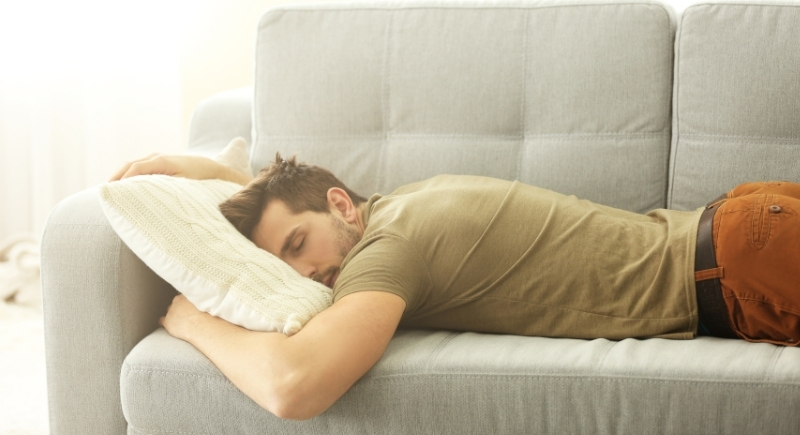
Credit: pixelshot
When you lie on a couch, there’s no set goal of when you need to fall asleep. That makes it easier to relax. In bed, people often focus on the time and whether they’ll sleep soon, which can add pressure and keep the mind active.
The TV Becomes Accidental White Noise
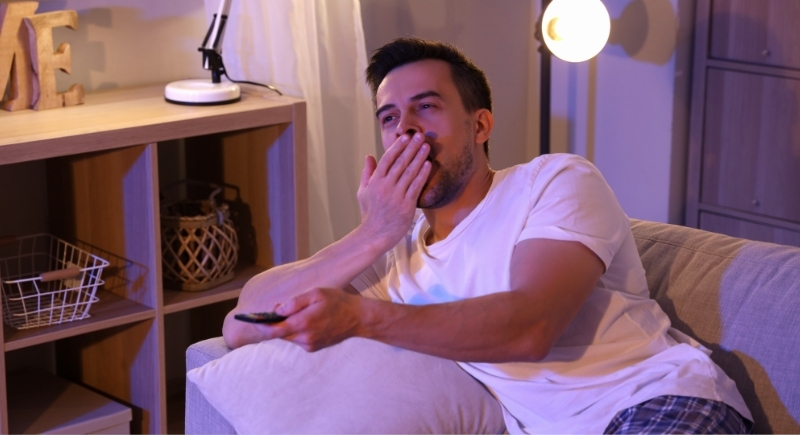
Credit: pixelshot
Putting on a show for “background noise” can end with you dozing off. The steady voices and softer light from the screen can make the body relax. Studies show that white noise helps block outside sounds, and a familiar sitcom can work in a similar way.
Your Sleep Pressure Peaks Before You Hit Bed

Credit: Getty Images
The longer you’re awake, the stronger the body’s drive to sleep becomes. That’s why it’s easy to doze off on the couch late in the evening. But taking a nap there uses up some of that sleep pressure. By the time you move to bed, the urge to sleep may already be weaker.
Heat Regulation May Work Differently
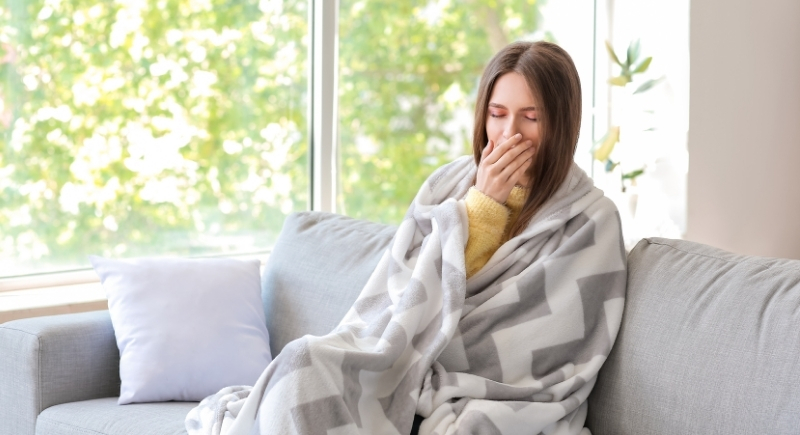
Credit: pixelshot
Couches usually sit lower than beds. In rooms without consistent temperature control, that difference could mean a few degrees cooler—and that’s often all it takes for better rest. Sleep studies consistently show people fall asleep faster and stay asleep longer in slightly cooler environments.
Light Sleep on the Couch, Deep Thoughts in Bed
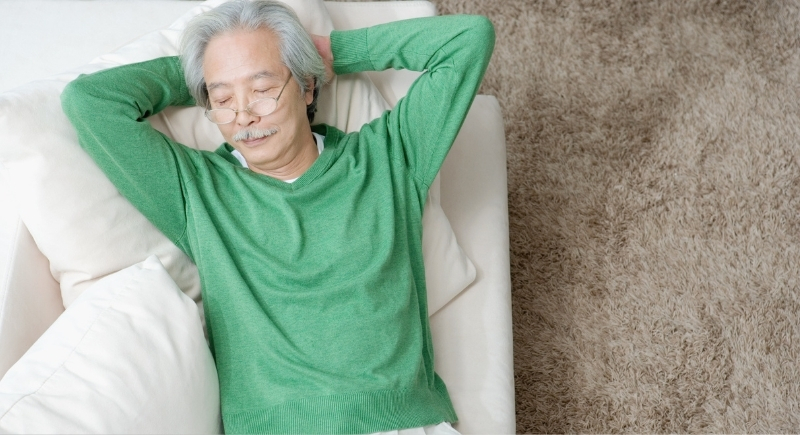
Credit: Canva
Sleep on a couch is often shallow. A short nap there usually doesn’t move into full REM sleep. Because of that, it avoids the vivid dreams or long thoughts that can come up in bed. Once you lie down in bed and focus on sleeping, the brain is more likely to enter deeper cycles, which can make it harder to drift off right away.
Your Bedroom May Be Too Stimulating
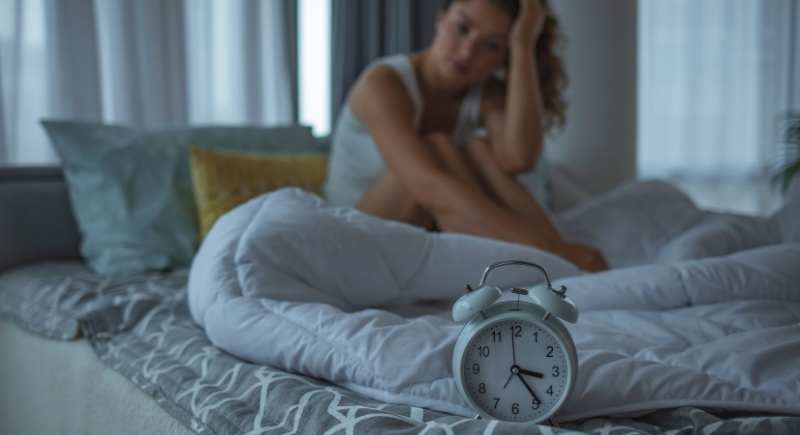
Credit: Getty Images
Devices like alarm clocks, phone chargers, and routers can add light and noise to a bedroom, thus making it less restful. Experts often suggest keeping technology and clutter out of the room, but many people don’t. By contrast, a corner of the living room with softer light and fewer distractions can sometimes feel more calming and better suited for dozing off.
Sleep Anxiety Grows With Repetition
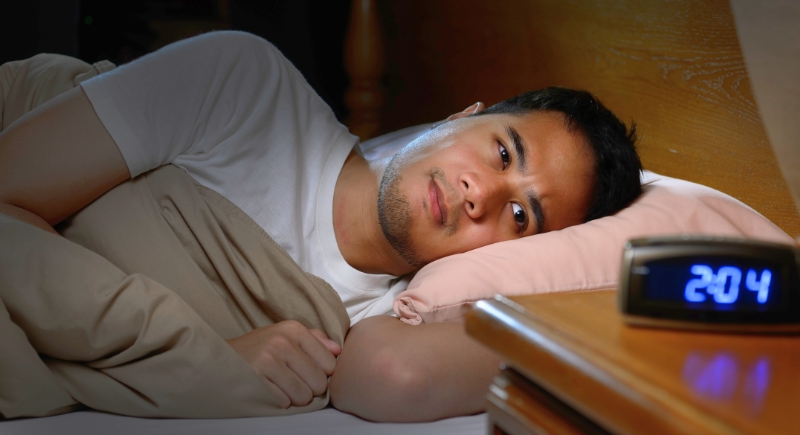
Credit: Getty Images
Insomnia often feeds on itself. After a poor night’s sleep, worry builds the following evening. That stress raises arousal levels and makes falling asleep even harder. Over time, the bed can become linked with frustration instead of rest. A couch, which isn’t tied to that cycle, can feel like a neutral space and make it easier to relax.
Posture Plays a Minor But Real Role
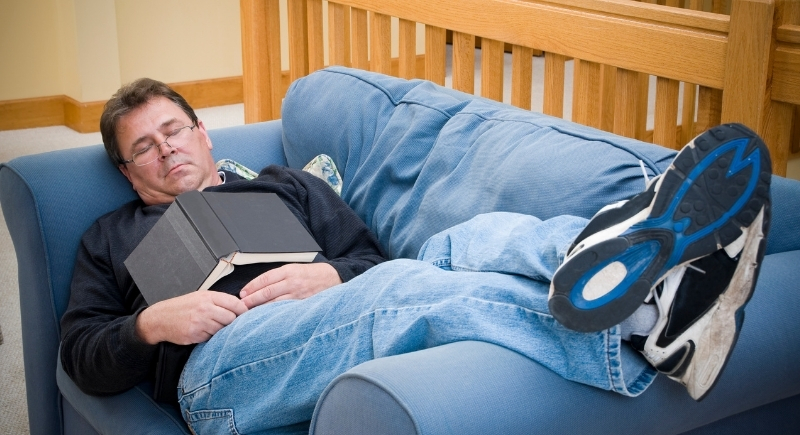
Credit: Getty Images
Sprawled on the couch, your body lands at odd angles—sometimes semi-reclined, knees up, or tilted on one side. This can lower blood pressure slightly and mimic pre-sleep positions. Lying perfectly flat in bed, while seemingly ideal, may not trigger the same sleepy signals for everyone.
The Couch Isn’t Where Tomorrow Begins

Credit: Getty Images
Going to bed often signals the end of the day and the start of tomorrow’s to-do list. The mental switch can trigger thoughts about bills, work, and other obligations. The couch doesn’t carry that weight. It’s not the launch pad for the next morning, just the spot where you landed with chips.
Scent Cues Differ by Room

Credit: Getty Images
Research shows familiar or comforting scents can improve sleep quality. Sofas are often near kitchens, where ambient smells like dinner or coffee are present. The bedroom, by contrast, may smell sterile or stale. Subtle olfactory input can influence how calm or alert the brain feels at bedtime.
Couches Sit in Low-Traffic Zones
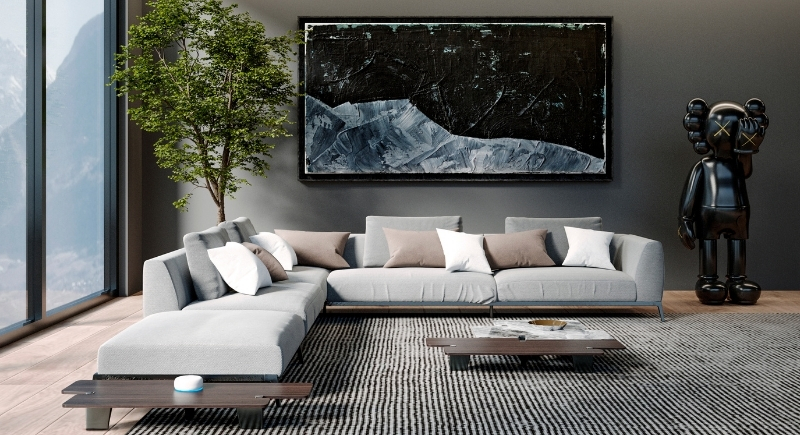
Credit: pexels
Beds tend to be closer to bathrooms, laundry rooms, or even shared walls with neighbors. The living room might be better shielded from hallway foot traffic or plumbing noise. These minor differences in ambient disruptions, particularly in apartments, could tip the scale toward deeper sleep on the couch.
Movement in the Bedroom Can Interrupt Rest
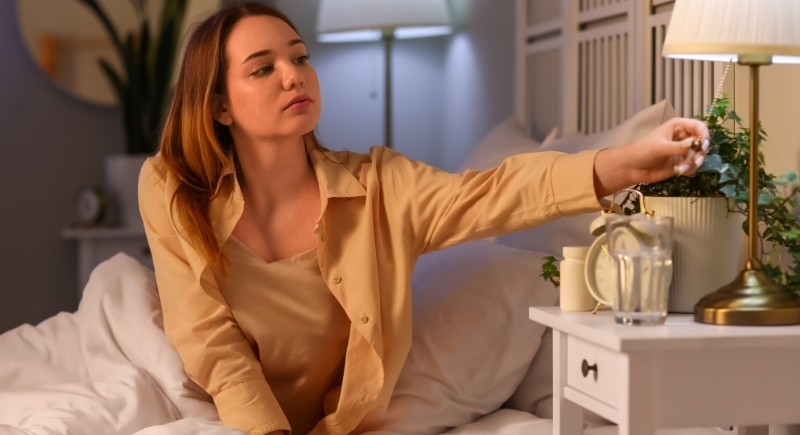
Credit: pixelshot
Turning off lights, brushing teeth, plugging in your phone—all those small steps between couch and bed re-energize the brain. The shift from rest to task mode, even briefly, signals alertness. By the time you hit the mattress, your body may have already moved past its best sleep window.
Shared Beds Mean Shared Movements

Credit: Getty Images
If you sleep with a partner, any tossing, turning, or repositioning can ripple across the mattress. On the couch, it’s often just you. Without someone adjusting their blanket or checking their phone, you get fewer disruptions, which is particularly important for light sleepers sensitive to subtle shifts in their sleep environment.
You’ve Accidentally Trained for Couch Sleep
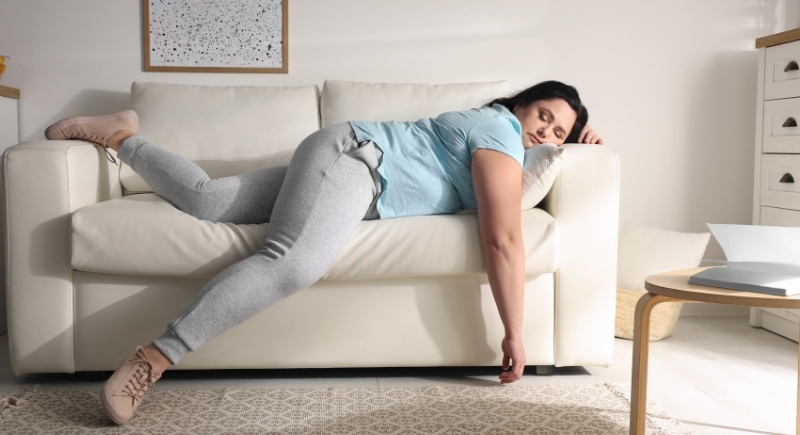
Credit: Canva
Behavioral conditioning doesn’t need intention. If you repeatedly fall asleep on the couch, the body learns that’s where sleep starts. Psychologists call this stimulus control. It’s like muscle memory for rest.
Your Bed Might Not Actually Be Comfortable

Credit: Getty Images
It’s a simple one, but easy to ignore: the couch might just feel better. Maybe the mattress is too firm or your pillows are worn out. It might not be about psychology if you’re waking up sore or readjusting constantly. The furniture may just need an upgrade.